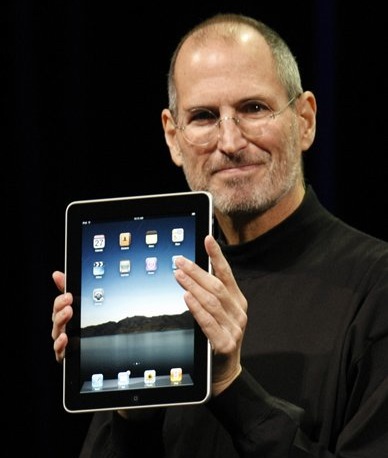
Here’s the list, in chronological order.
[aditude-amp id="flyingcarpet" targeting='{"env":"staging","page_type":"article","post_id":234454,"post_type":"story","post_chan":"none","tags":null,"ai":false,"category":"none","all_categories":"business,enterprise,media,mobile,social,","session":"A"}']Google struggles in China — After failing to make headway in China, the search giant threatened to pull out of the country unless it could deliver uncensored search results. The threat seemed to elicit an indifferent response from Chinese entrepreneurs, and Google eventually found a workaround, first by automatically redirecting Chinese users to its uncensored Hong Kong website, then eventually pointing those users to the Hong Kong site through a link.
Super angels take flight — A number of high-profile angel investors grew bigger wings this year by raising funds from outside investors. These “super angels”, which include Dave McClure’s 500 Startups, Mike Maples Jr.’s Floodgate, and Chris Sacca’s Lowercase Capital, tout themselves as more agile than traditional venture firms. They were also embroiled in a minor scandal when TechCrunch Editor Michael Arrington accused many of them of colluding to keep valuations low.
AI Weekly
The must-read newsletter for AI and Big Data industry written by Khari Johnson, Kyle Wiggers, and Seth Colaner.
Included with VentureBeat Insider and VentureBeat VIP memberships.
HP buys Palm — Following a bidding war, the computer-maker purchased the struggling Palm for $1.2 billion. Everyone assumed that Palm’s webOS operating system would boost HP’s mobile efforts, though the initial results seem more promising for tablets than they do for phones.
Facebook faces privacy backlash — As Facebook became more aggressive in its use of social data, critics grew louder and louder. We argued that if nothing else, chief executive Mark Zuckerberg needs to do a better job of explaining his position on privacy. Yet attempts to convince users to quit Facebook flopped, traffic continued to climb, and Facebook crossed the 500 million user mark.
Apple’s iPad shows tablet competitors how it’s done — When Apple released the iPad in April, the device seemed to live up to the insane hype, both in quality and sales numbers. Other major tech companies are developing their own tablets, but J.P. Morgan analyst Mark Moskowitz predicts that Apple will stay on top, at least until 2012.
Tesla Motors goes public — The high-profile electric car-maker held its initial public offering in June and also announced multiple deals with Toyota, but its financial future remains murky. The company is still losing money, and it said it doesn’t expect to break even until 2012. Meanwhile, chief executive Elon Musk got into a verbal battle with VentureBeat’s Executive Editor Owen Thomas, with Musk calling my boss “Silicon Valley’s Jayson Blair,” while Owen suggested that Musk has a problem with honesty.
Mark Hurd leaves Hewlett Packard — Hurd was pressured by the company’s board into resigning his post as CEO. The issue appeared to be Hurd’s relationship with former HP contractor and softcore porn actress Jodie Fisher, with the Wall Street Journal reporting that Hurd leaked news about an HP acquisition to Fisher. Outspoken Oracle CEO Larry Ellison criticized HP’s decision and later hired Hurd as co-president.
[aditude-amp id="medium1" targeting='{"env":"staging","page_type":"article","post_id":234454,"post_type":"story","post_chan":"none","tags":null,"ai":false,"category":"none","all_categories":"business,enterprise,media,mobile,social,","session":"A"}']
iPhone vs. Android — Once-allied companies Apple and Google have grown increasingly combative in their competition for the smartphone market. Android seems to have the greater reach, with 300,000 activations a day, though the iPhone 4 is seeing tremendous sales too. Google CEO Eric Schmidt, a former Apple board member, has joined the chorus of companies criticizing Apple for being too closed, a claim that Apple CEO Steve Jobs called “disingenuous”.
Internet companies join US crackdown on WikiLeaks — When WikiLeaks, the site for leaked government documents, came under fire from the US government, it found few friends in the tech world. Amazon.com booted the site off its online hosting service, PayPal stopped processing payments to WikiLeaks, and Apple removed a WikiLeaks app from its App Store. However, hackers came to the site’s “defense”, attacking services that had cut off WikiLeaks.
VentureBeat's mission is to be a digital town square for technical decision-makers to gain knowledge about transformative enterprise technology and transact. Learn More
